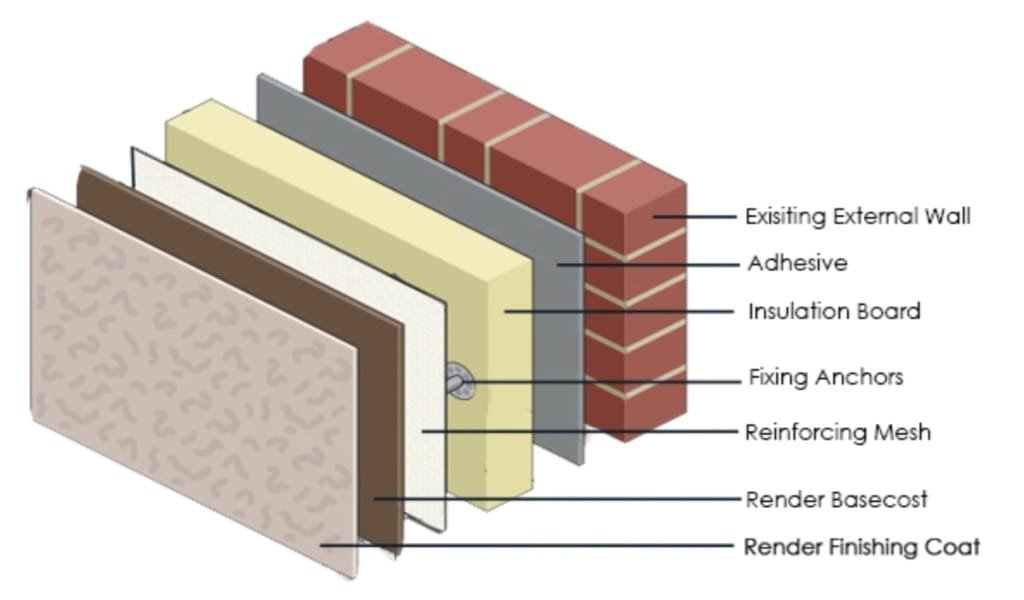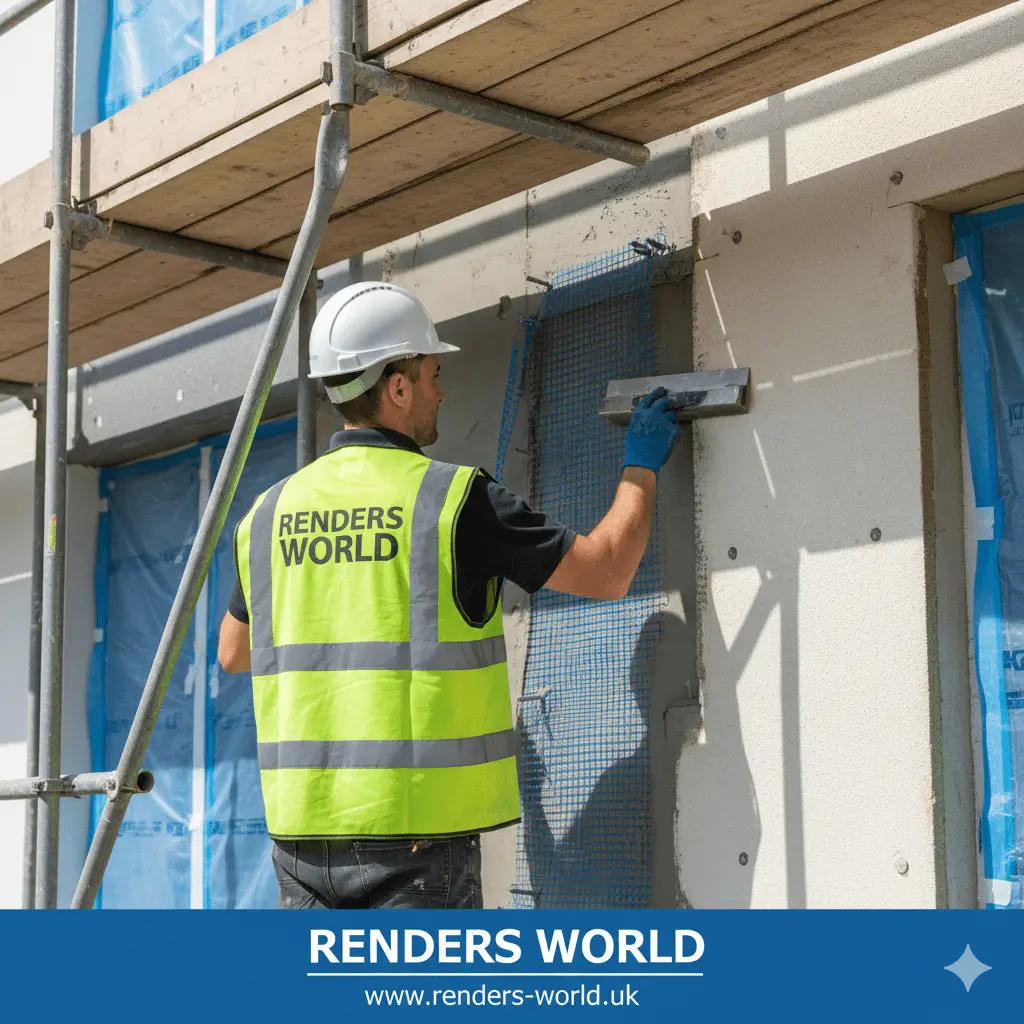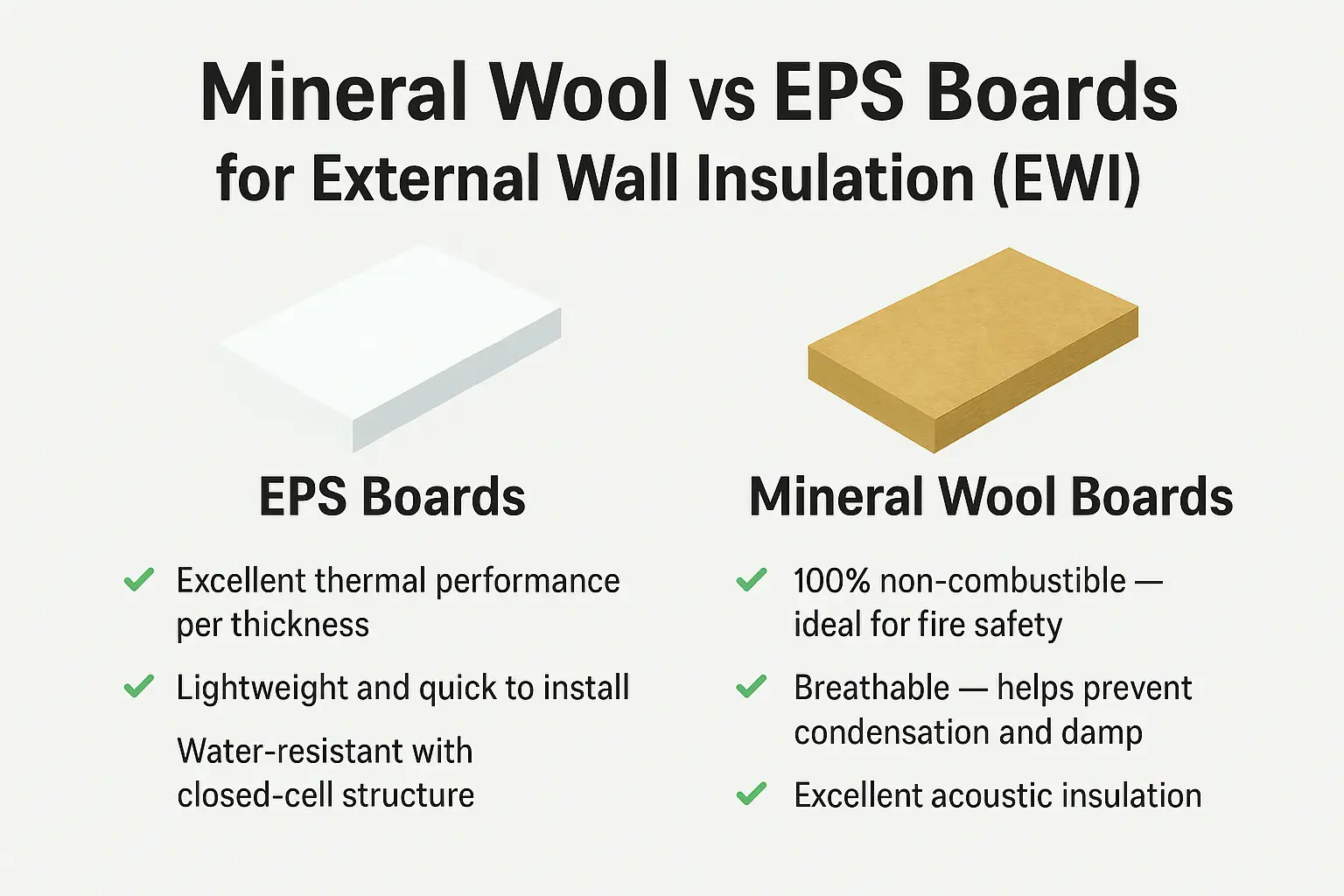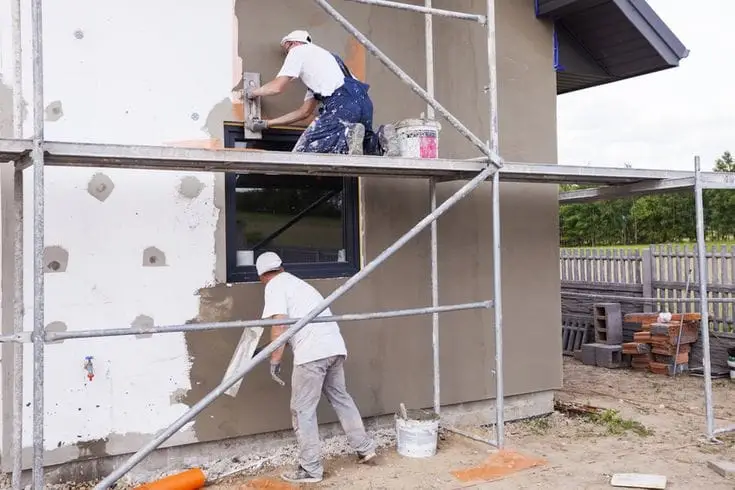The Benefits of Having an Exterior Wall Insulation
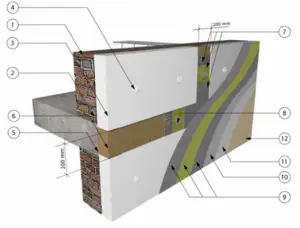
Exterior wall insulation is a type of insulation that is installed on the exterior of a building, rather than inside the walls. This type of insulation has a number of benefits for both residential and commercial buildings, including:
- Improved energy efficiency: Exterior wall insulation can help to improve the energy efficiency of a building by reducing heat loss through the walls. This can help to lower energy bills and make the building more comfortable for occupants.
- Reduced noise: Exterior wall insulation can also help to reduce noise levels inside the building by creating a sound barrier between the interior and exterior walls.
- Improved indoor air quality: Exterior wall insulation can also help to improve indoor air quality by reducing the amount of moisture that enters the building. This can help to prevent the growth of mold and mildew, which can be harmful to human health.
- Increased durability: Exterior wall insulation can also help to increase the durability of a building by protecting the walls from moisture and other types of damage. This can help to extend the lifespan of the building and reduce maintenance costs over time.
- Enhanced aesthetics: Exterior wall insulation can also be customized to match the exterior of the building, creating a seamless and aesthetically pleasing finish. This can help to enhance the curb appeal of the building and increase its value.
Overall, exterior wall insulation is a highly beneficial addition to any building, offering a range of benefits including improved energy efficiency, reduced noise, improved indoor air quality, increased durability, and enhanced aesthetics. With these benefits in mind, it is easy to see why many builders and homeowners are choosing to install exterior wall insulation in their buildings.


